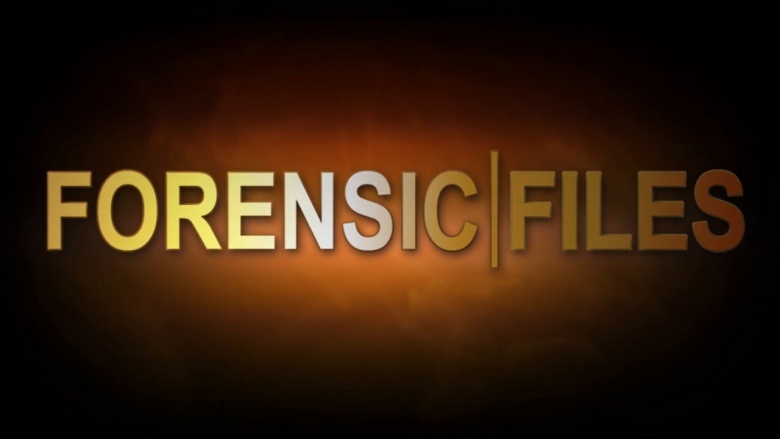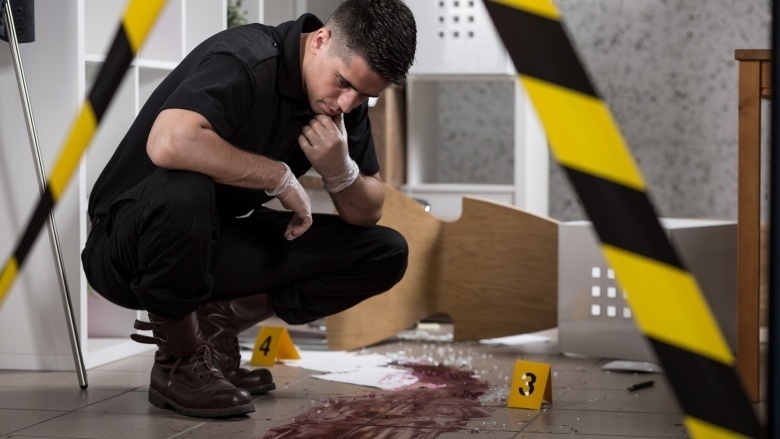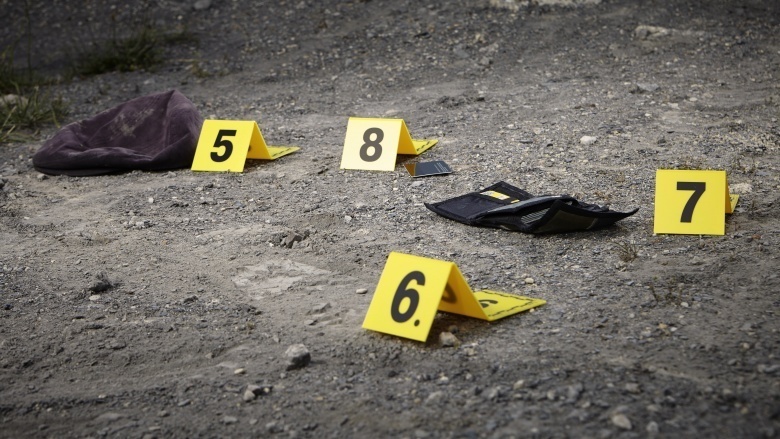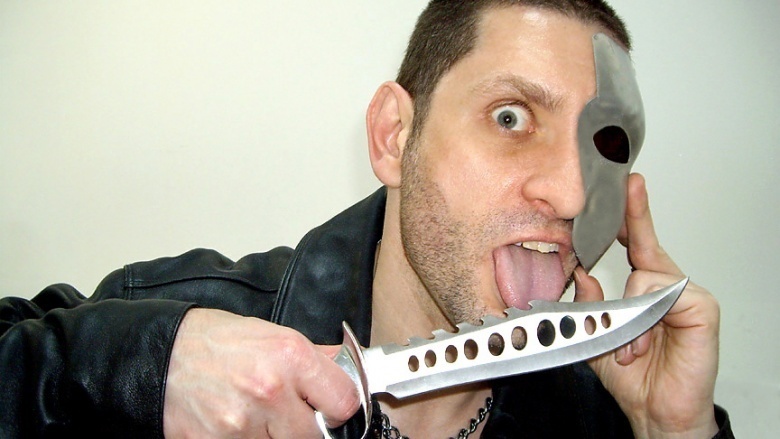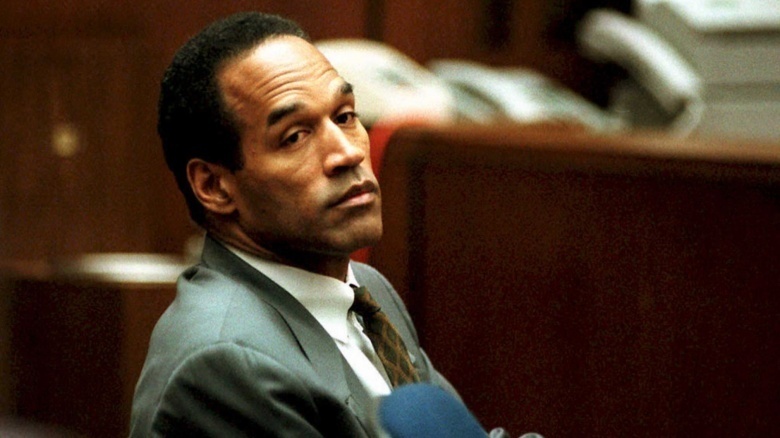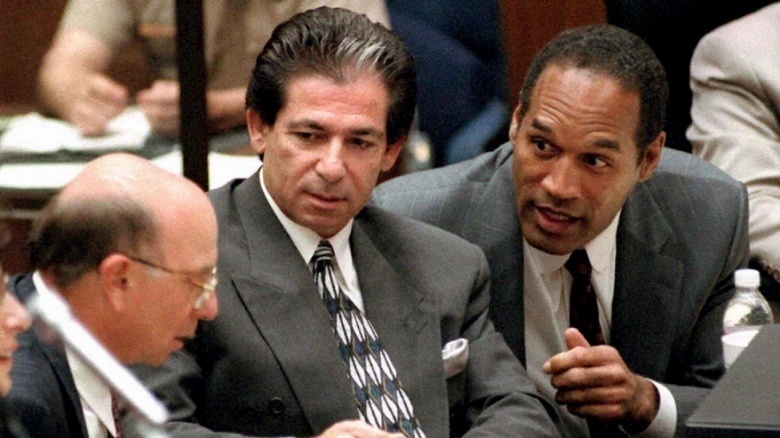The Untold Truth Of Forensic Files
We may receive a commission on purchases made from links.
Focusing on one case per episode, Forensic Files explores how forensic science has helped investigators put evildoers behind bars. With a reliable structure, a memorable narrator, interesting cases, clever writing, and real science to back up its claims, the show has become a modern classic. The perfect antidote to CSI's nonscientific sensationalism, Forensic Files delves into the real-life process of crime-solving. The only downside is the grim fates of the actual people whose cases it covers.
Think you know everything there is to know about the longest-running true crime series? Here's the untold truth of Forensic Files.
The show's inaudible reenactments used to have bad dialogue and worse acting
Who doesn't love Forensic Files' muffled reenactments? The early seasons featured audible dialogue, poorly miked, delivered by mostly non-actors. Then, without warning, later seasons scrapped the dialogue and replaced it with the style we know and love. For reasons that remain mysterious, the cringe-inducing dialogue sequences had all but disappeared by season seven. Perhaps it was because the reenacted exposition sequences risked becoming more gruesome to viewers than the crimes themselves.
The CSI connection
Forensic Files' success has indirectly inspired fictional procedural shows, fact-finding podcasts, a controversial documentary miniseries, and, in general, a renewed interest in the true crime and murder mystery genres in books, films, and even video games. Procedural franchises that are now household names owe a debt to Forensic Files for their popularity.
More or less a fictionalized version of the true crime documentary series, CSI premiered four years into Forensic Files' run. Whereas Forensic Files would remain an acquired taste by comparison, CSI made forensic science accessible to mainstream audiences and became an overnight sensation. At the same time, as a fictional show, CSI could play fast and loose with the "science" part of forensic science, resulting in the so-called CSI effect, which misrepresents the speed of scientific testing, among other facts of forensic analysis.
When they aren't abridging timelines, the various CSI series misrepresent presumptive tests as conclusive. In this scene, while using BlueStar luminol to find blood, one of the characters sprayed too much of it, destroying the DNA. It's implied that luminol only reacts with blood, which isn't true. As covered in numerous Forensic Files episodes, horseradish sauce and certain household cleaners can generate false positives. The jury's still out on whether the CSI effect actually influences courtroom verdicts.
Forensic science continues to advance post-Forensic Files
Whereas CSI and its spinoffs routinely misrepresent key facts in the interest of maintaining dramatic tension, Forensic Files—which its critics slander as "boring"—takes no liberties with the truth. That said, as techniques and technologies continue to develop and become more precise, it's virtually inevitable that some of yesterday's facts will be tomorrow's junk science. Diehard fans could soon find themselves wincing at the claims made in an old episode of Forensic Files in much the same way actual crime scene investigators wince at CSI.
Notable recent developments in forensic science include the establishment of the Combined DNA Index System (CODIS), innovations in high-speed ballistics photography, and the discovery of a natural limit on forensic carbon-14 dating. CODIS is a national database containing DNA profiles of violent criminals. High-speed ballistics photography isn't just awesome to watch; it also provides investigators with invaluable information about things like bullet trajectory and spatter patterns. Forensic carbon-14 dating identifies skeletal remains by making use of the nuclear age's higher than normal levels of radiocarbon in the environment. It will be useful for another decade or so, assuming nobody drops another nuke.
The most celebrated development is the mounting library of evidence on the troubling relationship between chronic traumatic encephalopathy (CTE) and domestic violence. Due to the celebrity status of professional athletes, professional sports leagues' newfound interest in concussion-related medical research, and the disproportionate amount of incidental documentary footage that we have of athletes getting concussions, CTE-related research is booming. (Ridley Scott and Will Smith even made a pretty good movie about it.)
Wait, is that Kano from Mortal Kombat?
People will do anything for a buck. They'll lie, cheat, steal, fight and kill each other for it. Pushed to extremes, they might even take low-paying jobs as extras on Forensic Files.
Although many of the paramedics and cops in the reenactments are actual first responders, the laymen (killers, victims, et cetera) are typically played by unknown actors. One such actor, Damien Colletti, went on to star as Kano in the 2015 crowdfunded independent short film Mortal Kombat: Fates Beginning. Colletti had roles on three episodes of Forensic Files: "Traffic Violations," "The Day the Music Died," and the remarkably titled "All Butt Certain," so named for the cigarette butt that ultimately exonerated Clarence Elkins.
The O.J. connection
In October of 1995, the jury reached a verdict in the trial of O.J. Simpson for double murder. Alleging a miscarriage of justice, critics blamed the state's failure to convict on the defendant's fame, racist cops, and—above all—the botched handling of the crime scene's forensic evidence. Amid growing controversy surrounding the surprise acquittal, Paul Dowling felt inspired to create a show about forensic science; as he later recalled, "[After the verdict was announced] I decided, why don't I do a show about real murder cases and how science solved them?" Premiering in 1996, Forensic Files, then called Medical Detectives, quickly gained a devoted following.
In recent years, the relationship of Simpson's story to forensic science has come full circle and taken on a new poignancy. In 1995, bad forensics couldn't convict Simpson, though he would later be found liable for the deaths in a civil suit. Today, Simpson languishes in prison for a 2007 armed robbery and kidnapping conviction. For forensic scientists, it begs the question: could Simpson's pattern of violence be related to the hits he took in his 11 seasons as an NFL running back? Dr. Bennet Omalu, the leading forensic scientist on traumatic brain injuries (portrayed by Will Smith in Concussion), is willing to bet his medical license on it.
The Kardashian connection
Although superfans might balk at the suggestion, modern reality TV and Forensic Files' stars aligned the moment Robert Kardashian stepped up to the mic. Breaking news stories had overtaken popular consciousness in the past—but never like that. Millions were watching as Kardashian—whom today's cool kids know as Blac Chyna's deceased father-in-law—tearfully read a would-be suicide note from his beleaguered friend and client, then-fugitive O.J. Simpson. You don't have to be a sociology professor—or, for that matter, a forensic linguist—to surmise that whoever wrote the letter had a very guilty conscience. Shockingly, the prosecution would fail to enter the letter into evidence at trial—proving that no amount of forensic evidence can make up for incompetence in the courtroom.
Narrator Peter Thomas had an impressive life
Called "The Franchise" by the show's creator, narrator Peter Thomas was a larger-than-life figure—a highly decorated World War II hero, published poet, radio pioneer, and the unmistakable voice of NOVA documentaries and now-classic ads for American Express ("Don't leave home without it"). At 19, he fought in the First Infantry Division at the Battle of the Bulge, earning five battle stars, the Bronze Star, and the Purple Heart for his bravery and service.
Unsurprisingly, when you consider his background in radio, Thomas didn't merely read his lines for Forensic Files. According to the series companion book, Thomas rehearsed each episode's script multiple times with the help of his wife Stella to get the tone just right. In a twist all too appropriate for the narrator of a show about—among other things—death, a lot of real people have heard Thomas' distinctive voice in their dying moments, because he also provided the voice for Philips' HeartStart line of Automated External Defibrillators (AEDs), used by first responders worldwide. Thomas died in April of 2016 at the age of 91, two years after Stella. At the time of her passing, they had been married for nearly 70 years.
Thomas did voice work for hundreds of commercials and documentaries in addition to Forensic Files. A national treasure from the Golden Age of radio and television, just listen to him talk about his extraordinary life and career.
